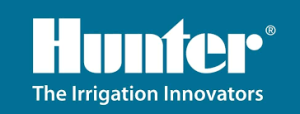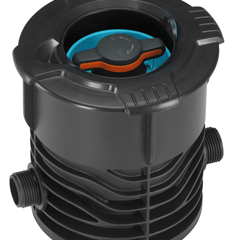Category
Recent Posts
- IWMI appoints Olufunke Cofie as new Africa Director for Research Impact
- IWMI tackles water scarcity in Punjab with groundbreaking GMIS
- Cutting-edge mapping techniques are crucial for managing water storage in South Asia
- [Explainer] What is micro irrigation?
- What the attempts to clean the Seine reveal about water pollution worldwide
Recent Comments

The Ultimate Weed Control Solution

Brands









Heads of state and government ministers from across the African continent gathered with representatives of international organisations, financial institutions and European ministers in Rome on 28-29 January for Italia-Africa Summit.
The summit was the launchpad for Italy’s much anticipated Mattei Plan for Africa, a €5.5 billion (US$5.9 billion) investment programme that aims to offer a new cooperation model for the continent.
The programme is centred on five pillars: education and training; health; agriculture; water; and energy.
During her opening address, the Italian prime minister Giorgia Meloni referenced several pilot infrastructure projects in each pillar.
To support education and training, Italy plans to build a renewable energy vocational training centre in Morocco and upgrade school infrastructure in Tunisia, in addition to providing training and refresher courses for teachers.
In the health sector, Italy is looking to improve accessibility and the quality of primary services in Côte d’Ivoire.
In the field of agriculture, the Mattei Plan will support a satellite monitoring project in Algeria and the construction of an agri-food centre in Mozambique. In Egypt, Italy plans to support the production of wheat, soya, corn and sunflowers in an area 200km from Alexandria, investing in machinery, seeds, technology and new cultivation methods, in addition to supporting vocational training.
In Tunisia, a project has already been launched to upgrade purification stations for non-conventional water in order to irrigate 8,000 hectares, along with the construction of a training centre dedicated to the agri-food sector.
To improve the management and access to water in the Republic of the Congo, Italy plans to work on the construction of wells and water distribution networks powered exclusively by renewable energy. This will mainly be used for agricultural purposes.
In Ethiopia, there are plans to launch environmental rehabilitation work in a number of areas and implement water purification measures, providing training and technical support to local universities.
In the energy sector, there is interest in supporting Kenya’s plans to develop a biofuels supply chain, which aims to involve up to around 400,000 farmers by 2027. Italy is also supporting the ELMED electricity interconnection between Italy and Tunisia, and the new H2 South Corridor to transport hydrogen from North Africa to central Europe, passing through Italy.
“I wanted to talk about concrete projects and initiatives that can have a significant and immediate impact in the nations where they are implemented, and that can be extended not just in terms of their size but also in terms of the sectors in which they are deployed,” the prime minister said.
“I intend to personally follow the implementation and development of these projects; the people in charge on our side are ready to immediately begin defining the operational aspects of those projects that are not yet underway. However, this is clearly only the launch of the plan, and we aim to replicate successful models in all African countries that are interested.”
Meloni stated that the Mattei Plan has an initial budget of more than €5.5 billion in loans, grants and guarantees, with approximately €3 billion being allocated from the Italian Climate Fund, and around €2.5 billion coming from development cooperation resources.
“Of course, this is not enough, which is why we want to involve international financial institutions, multilateral development banks, the European Union and other donor countries, who have already stated their readiness to support joint projects,” she added. “We also intend to create a new financial instrument by the end of this year, together with Cassa Depositi e Prestiti, to facilitate private sector investments in Mattei Plan projects.”
Meloni further described the Mattei Plan as “a concrete plan of strategic measures, focusing on a few, key, medium and long-term priorities, because we also need to say enough is enough to the logic of spending resources in myriads of micro measures that do not produce significant results.”
Photo: Summit attendees (Source: Italian government)







